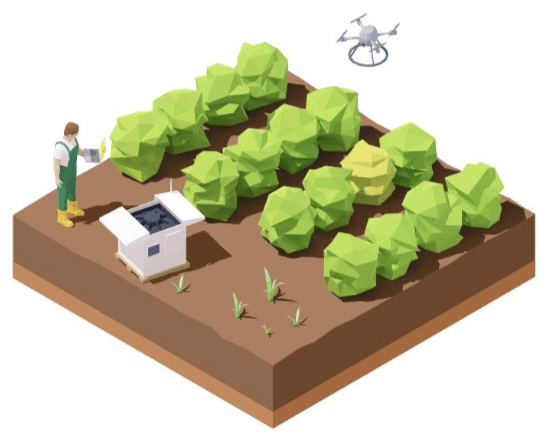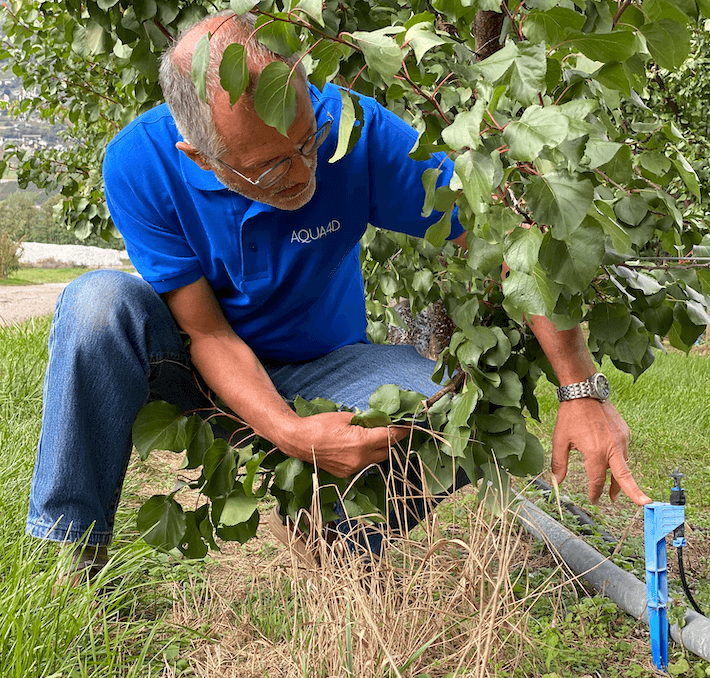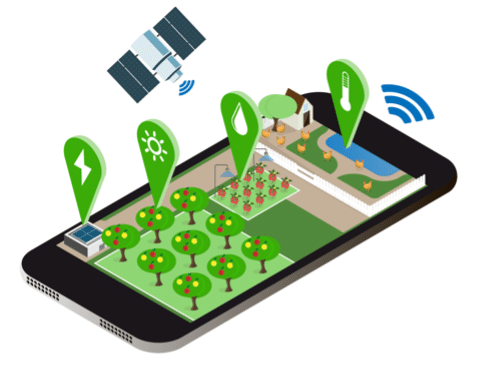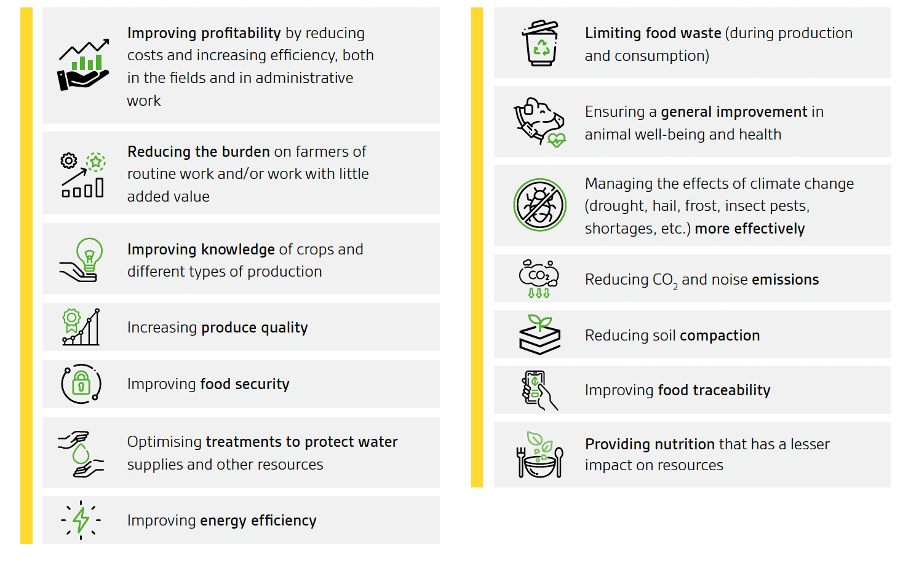Our planet’s living natural heritage is essential to the development of ecosystems and the biosphere. But we face a dilemma: ensuring sufficiently intensive farming and guaranteeing food security worldwide while maintaining biodiversity and protecting the environment. This report looks at some Swiss companies innovating to help the world achieve this.
THE ENVIRONMENT AND INNOVATION: PART OF SWITZERLAND’S DNA
Switzerland has long been a pioneer in passing legislation to protect the environment, and innovation is in our blood. With favourable framework conditions in place, Swiss enterprise has been encouraged to develop solutions, tools, products and services that support society’s evolution towards ever greater sustainability and resilience.
A KEY ROLE FOR TECHNOLOGY?
Compared to other industries, the industrial food production sector is today plagued by widespread inefficiencies and encumbered by a growing number of constraints. In food production and agriculture in general, the need for technological innovation is more pressing than ever.
The approach we adopt can no longer be limited to a particular sector, in this case agriculture. Its challenges and problems are inextricably linked with others, and this calls for a concerted, systemic approach
WHAT IS AGRITECH? CONTEXT AND DEFINITION
In Switzerland, as elsewhere, agriculture is under pressure. Economic pressure first of all, with increased competition from abroad. And spatial pressure too, with the amount of land available to farming declining due to the rapidly increasing population and growing urbanisation. And lastly, popular pressure, with repeated demands from the Swiss population to reduce the environmental impacts of agriculture, particularly regarding the use of crop treatments.
In this context, every avenue for optimising or improving land use must be exploited to protect the agri-environmental conditions, ensure that farms remain competitive and safeguard the country’s food security. Agritech – or agricultural technology, in particular smart farming applications – is one solution that meets all these challenges. In short, agricultural technology is designed to facilitate the work of farmers while enabling them to make a better living and reduce their environmental and energy impact.
REDUCING THE IMPACT ON WATER
Water is an essential resource. Several Swiss companies have already come up with ways to ensure that water is used sustainably. One of these is AQUA4D, based at the Daval Ecopark in Sierre (Canton of Valais), which has developed a water treatment unit for use on large farms. This device uses no chemicals and provides savings of up to 30% in irrigation water. It also ensures better assimilation of minerals by the plants. AQUA4D’s solution is a comprehensive one that can for example be used to measure crop growth by drawing on a whole battery of indicators collected from separate sensors measuring variables such as humidity, salinity and temperature.
Hydrosolutions specialises in water management for agricultural irrigation, focusing on its use in arid regions, providing farmers in these regions with all the essentials they need to manage their water resources. Agroscope, Switzerland’s flagship agricultural research institution, has developed the Agrometeo website for use by farmers. In just a few clicks, users can, for example, access a full hydrological assessment of their agricultural land. The KLS filter developed by RWB Groupe is used to treat water in areas that are not connected to a drinking water system. Easy to maintain and particularly suitable for remote farms, this filter can treat up to 30,000 litres of water a day.
A REVOLUTION… ALL ALONG THE FOOD CHAIN
This new technology is likely to revolutionise not just agriculture but the entire food chain. Agricultural technology applies to the entire value chain, including areas that come into play before production, such as equipment, seed, fertiliser, legislation and funding. The agritech revolution has clearly begun, at every level. But surprisingly, agricultural production, which in the long term will be the area most profoundly affected by this revolution, is for now only tangentially involved in the developments we are currently seeing. We therefore urgently need to spread the word about the state of the art in agritech to ensure that the players in the agricultural sector can contribute, bringing their expertise to deciding on and developing the tools of tomorrow.

—
The challenges facing agritech:
This article is an extract from a Cleantech Alps special report; the full version is available here.
Switzerland
Precision Irrigation
Climate-Smart Agriculture
“To deal with the changes we face, agricultural businesses are constantly called upon to be flexible. In this situation, innovation – in products, services and production – is absolutely crucial. This is why Switzerland’s Federal Council is backing the farming and food industries in their efforts to improve quality and sustainability and to exploit the potential for innovation and technological development that is out there.”
– Guy Parmelin, President of Switzerland
AQUA4D’s Eric Valette on the potentials of Agriculture 4.0.

Hardware as a Service: AQUA4D’s Precision Irrigation





